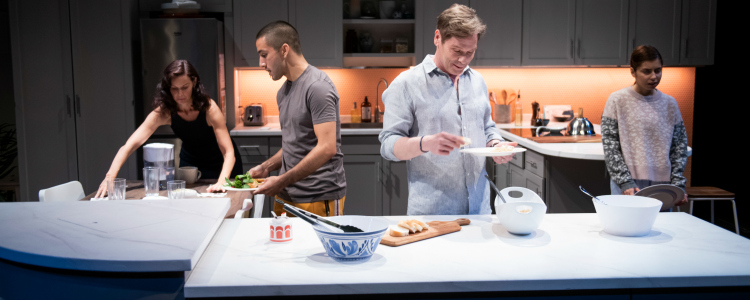The Lack of Representation of Eating Disorders in the Arts
I have loved theatre since I was a toddler. It has always been an integral part of who I am; my deepest obsession. Until another one took over: food. I was a teenager when I started struggling with disordered eating, and things escalated when I began college. “Clean” eating consumed my life to the point where I lost my period for four years. Gone was the bubbly, confident girl who sang in taxi cabs. In her place, there was a new Domenica: one who was painfully insecure, socially isolated, and lived in terror of missing a workout or eating anything that wasn’t “safe.”
Because my weight never got dangerously low, my eating disorder was often praised and encouraged by those around me. Loved ones made comments like, “it makes me so proud to see you eating like a bird” and “you’re more beautiful than ever before,” even though I was seriously struggling in all other aspects of my life.
While this was going on, I continued going to the theatre, eight times a week sometimes, and it dawned on me that there were no stories being told about what I was going through. The most I got was an episode of television where a character struggled with bulimia but then magically recovered once the 40 minutes were up, which was incredibly frustrating for me. Many of the women in my life have struggled with some form of disordered eating, some for decades even. This isn’t something you outgrow or get over. Recovery is complicated and often feels unattainable, in part because, unlike other addictions, abstinence from food isn’t an option.
Through social media, I discovered a wide community of people like me; you can feel incredibly lonely when you suffer from an eating disorder, and to know that I wasn’t alone inspired me further. Though it had never been my intention to become a writer, I wanted to give voice to this struggle that so many of us go through and give representation to the millions of people who need it, in hopes we will finally start talking about this issue. The silence that seems to prevail around eating disorders doesn’t help, it adds to the stigma and fierce denial that surrounds this disease. I thus began the four-year journey of writing a play.
I wanted to explore the pain of what it means to struggle with disordered eating, how excruciating it can be to remove certain triggers from your life, yet how crucial. I wanted to tell the story of a family that, while individually doing their best, collectively fails to either realize that the member struggling with anorexia isn’t the only problem, or acknowledge their own culpability in her illness. I also wanted to examine the wide spectrum of eating disorders—how they can be accepted, enabled, and encouraged, even by those who love us most.
Eating disorders are remarkably complex: there is no one cause, nor is there a clear solution. That is precisely why we should be talking about them. Coming out of hiding, sharing our experiences, saying, “Hey, I struggle with this and maybe I always will, but I am doing my best,” that’s how we attempt to heal. My play does not wrap things up with a bow, to do so would be a disservice to the issue at hand. But I hope it will open up a dialogue, one I feel is critically important and has been paused for far too long.
Domenica Feraud, the playwright and actor playing Rachel in Rinse, Repeat, her play about eating disorders, is a graduate of NYU Tisch where she studied at the Stella Adler Studio and got to play such roles as Lady Macbeth, Lady Olivia, Lil in Kindertransport, and Val in Fen. TV: “Law & Order SVU”. Film: Betafish, which she also co-wrote and produced.
Banner production photograph from Rinse, Repeat by Jenny Anderson.





